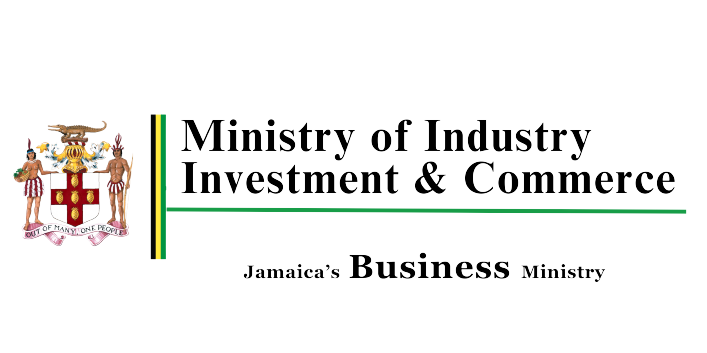
President of the Jamaica Manufacturers and Exporters Association (JMEA), Richard Pandohie.
Stakeholders in the manufacturing and export sectors are optimistic that the economy will begin to rebound by September and are ready to invest in expanding their output.
President of the Jamaica Manufacturers and Exporters Association (JMEA), Richard Pandohie, tells JIS News that more than 40 per cent of the JMEA’s members believe that the economy will start to show recovery by the end of the third quarter of 2021.
He says that more than 33 per cent have indicated that they will increase spending to boost production.
He notes that the optimism is spurred by vaccine development, the easing of restrictions, and signs of recovery of tourism and hospitality, which will help to reduce the level of contraction of the industries.
Mr. Pandohie tells JIS News that while the manufacturing and export industries were significantly impacted by the onset of the coronavirus (COVID-19), the sectors have not had the level of fallout that was initially anticipated.
“Overall, the manufacturing and export industries have shown resilience despite the challenges, and it is estimated that more than 90 per cent of the workforce employed to the sectors were able to retain their jobs,” he says.
The JMEA President informs that the impact of the pandemic resulted in approximately 55 per cent of manufacturers and exporters experiencing cash flow issues, which affected their credit facility or ability to finance themselves.

Industry, Investment and Commerce Minister, Hon. Audley Shaw (centre); Executive Chairman, ARC Manufacturing Limited, Norman Horne (left); and President of the Jamaica Manufacturers and Exporters Association (JMEA), Richard Pandohie, tour the metal slitting plant at ARC Manufacturing Limited in Kingston in 2019. (Rudranath Fraser Photo)
“Similarly, due to extensive shortages of foreign exchange and bouts of high volatility, many manufacturers and exporters were unable to finance their debts or purchase enough raw materials,” he says.
He notes that the small and medium-sized enterprises (SMEs) suffered the worst impacts of the pandemic.
“According to the COVID-19 Impact Assessment conducted by the University of the West Indies (UWI), small Jamaican businesses typically only have about one to two months of cash reserves. Such liquid reserves serve as critical buffers when businesses face significant reductions in revenue.
“These companies also faced significant losses or decrease in the local market. Liquidity concerns are exacerbated by the difficulties that Jamaican firms have with accessing external sources of finance and moratoriums for already existing loans,” he points out.
Mr. Pandohie says that larger companies were also affected, with some laying off staff, closing physical offices and making investments so that workers could operate from home. Some entities had to defer or cease planned investment projects.
The JMEA President notes, however, that manufacturers in the food, pharmaceutical and sanitation subsectors showed improved performance due to increased local and export demand, with several companies reinventing their businesses to supply vital products needed for individuals to protect themselves from contracting the virus, and to contain its spread.
“Many companies have pivoted to provide masks, hand sanitisers and other cleaning agents or COVID-19 essential products for the local and international markets. This resulted in the value of hand sanitisers produced to increase by over 30 per cent or $15 million in May 2020,” the JMEA President informs.
Mr. Pandohie notes that there was also increased export demand for tissue, bleach, and natural food products “and this resulted in some positive stories during the pandemic”.
He says that there is now significant demand for natural products, such as teas and ginger beverage, leading to a huge opportunity for export growth.
“Additionally, due to the pandemic, customers are now more than ever seeking to purchase their products through e-commerce. The JMEA has visibly noticed many companies opting to provide this service to their customers.
However, much more needs to be done in this regard to better facilitate the producers,” he points out.
Of note, some business operators benefited from the Government’s $10-billion COVID Allocation of Resources for Employees (CARE) Programme, which is aimed at cushioning the economic impact of the COVID-19 pandemic by providing financial assistance to workers and businesses adversely affected.
Mr. Pandohie informs that a few manufacturers who primarily produce goods for the tourism industry were able to benefit under the Business Employee Support and Transfer of Cash (BEST Cash) component of the programme, which was designed to aid eligible registered entities in retaining workers in tourism and related sectors over the March 10, 2020 to June 30, 2020 period.
The BEST Cash initiative provided temporary cash transfers to registered businesses operating in the hotel, tours, attraction, and segments of the industry that are registered with the Tourism Product Development Company (TPDCo) based on the number of workers they kept employed.
“Other producers were able to benefit from the Supporting Employees with Transfer of Cash (SET Cash) [component] that allowed their laid-off staff to receive funding. Companies [also] reported benefiting from the COVID-19 Small Business Grant for SMEs “which…was critical for them during periods of little or no sale,” Mr. Pandohie informs.
He notes that the JMEA also played its part in ensuring that despite the negative effects of COVID-19, the business environment remained as stable as possible and conducive to production and export.
“This has been done by successfully advocating that all manufacturing was deemed essential during the height of the COVID-19 lockdown period, which allowed companies to continue operating during regular times and produce goods; advocating against the removal of duties for imported COVID-19 essential products such as masks and hand sanitisers that were being produced in bulk locally; [and] advocating for the removal of the Jamaica Agricultural Commodities Regulatory Authority (JACRA) cess, which was reduced by 50 per cent,” the JMEA President informs.
The JMEA also assisted its members by advocating for Jamaica Post to reinstate fast-track shipping internationally and extending the same-day pickup option to Westmoreland, which allows producers in that parish to benefit from reduced delivery time.
The entity also partnered with United States-based shipping company, FEDEX to provide discounts on their services to JMEA members and developing a COVID-19 best practices policy for manufacturers.
Additionally, Mr. Pandohie tells JIS News that the organisation “developed the Build Jamaica COVID Recovery Strategy, which led to the Economic Recovery Task Force being developed; developed a database of COVID-19 essential product producers for the hospitality industry during its reopening; [and] implemented an export growth plan”.
Manufacturing is expected to play a key role in the country’s COVID-19 economic recovery strategy.
The Jamaica Promotions Corporation (JAMPRO) has identified areas for investment in agro-processing, cosmetics, packaging, medical cannabis or marijuana, personal protective equipment (PPE) and medical disposables, and light manufacturing, among others.
The Government has implemented a National Five-Year Manufacturing Growth Strategy, which targets the achievement of $81 billion in manufacturing output by 2025 and an annual average growth rate of three per cent over the five-year period.
Source: JIS










